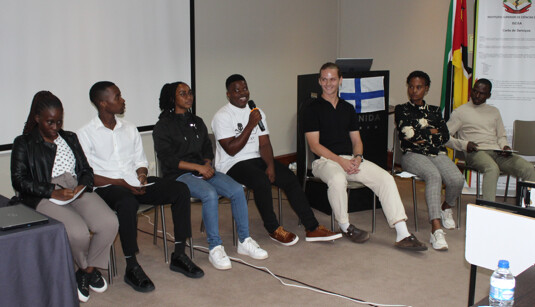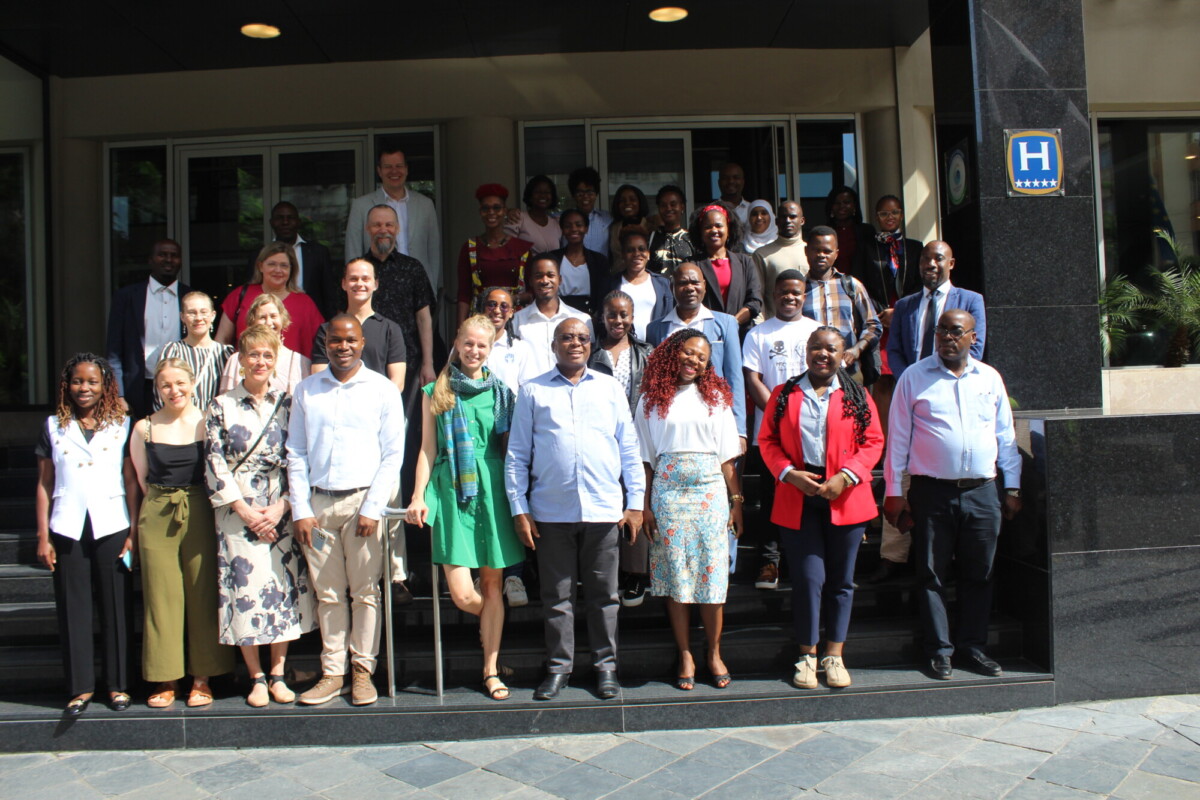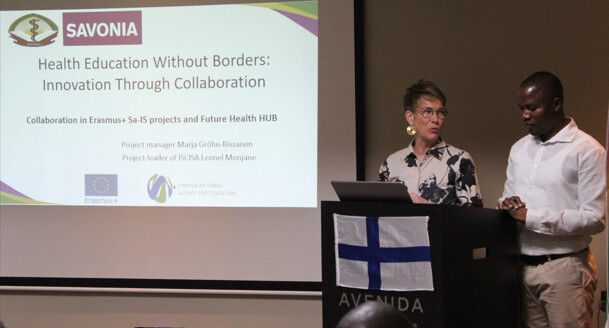
Savonia Article: Health Education Without Borders: Innovation Through Collaboration -International Conference in Maputo – April 10, 2025
This work is licensed under CC BY-SA 4.0
This article provides an overview of the international conference Health Education Without Borders, jointly organized by Savonia University of Applied Sciences (Finland) and ISCISA (Mozambique). The event highlighted the key results from two major international initiatives: Erasmus+ SA-IS (1.8.2022- 31.7.2025) and the Future Health HUB (funded by Team Finland Knowledge, (1.8.2023- 31.12.2025) These projects have played a significant role in developing new approaches to healthcare education through collaboration, innovation, and international partnerships, particularly between Savonia University of Applied Sciences and ISCISA University. This was the first conference organized by ISCISA University and a total of 41 participants took part in the conference.
This main article is accompanied by a series of follow-up articles, each based on presentations delivered during the conference day. These other sub-articles explore key themes such as work-based learning and the Health HUB model. They support students in evidence-based projects, including a home visit pilot in Maputo. The Future Health HUB project follow-up articles explore the development of the Future Health HUB model, provide support for students in using open access academic sources, and describe evidence-based pilot projects carried out in Maputo and Kuopio.
The follow-up articles from Erasmus+ projects focus on the use of virtual learning environments (VLE) prior to internships, as well as the promotion of cultural understanding through international mobility. Together, these articles expand on the conference themes and highlight the core outcomes of the projects.

Student Perspectives on the Conference Experience
Seven students who participated in the conference responded to the survey. Students described the day as highly engaging and meaningful. They felt encouraged to participate and saw their role as active contributors to the program. Interactive elements, such as panel discussions, open conversations, and the sharing of personal experiences, were seen as especially supportive of learning.
The presentation on future healthcare skills made students think about their professional growth. One student highlighted the cultural insight gained through international exchange, emphasizing its impact on both academic growth and personal identity. Overall, students appreciated formats that allow them to contribute their own views and learn from each other across borders.
Teachers’ Perspectives on International and Student-centered Learning
Seventeen teachers responded to the survey. For teachers, the event offered new insights into cross-cultural educational collaboration and student-centered learning. They noted the importance of evidence-based practices, cultural awareness, and real-life learning environments. The Future Health HUB model of learning was recognized as a strong example of how collaboration between students and teachers can generate real community impact.
Teachers also reflected on the planning and commitment required for international projects. The event’s structured process, identifying, understanding, addressing, and evaluating challenges, provided a clear and useful model for future collaboration. It highlighted that learning could take place in various ways and settings, not just in traditional classrooms.
Strengthening Partnerships Between Education and Working Life
Two representatives from working life sectors responded to the survey. They expressed strong interest in continuing collaboration with educational institutions. Future collaboration could include continuing student and teacher mobility, sharing practical healthcare knowledge such as treatment videos, and exchanging skills and procedures through new joint projects. All of these ideas aimed to build long-term partnerships that help students learn through practice and support local communities.

Feedback and looking Ahead
Feedback from all participants was overwhelmingly positive. Nearly 80% said the event exceeded their expectations, and the average overall rating was 9.0 out of 10. Elements such as internationality, collaboration, and opportunities for active participation were particularly praised (each scoring 9.3/10).
Participants valued the open sharing of experiences, discussion of cultural differences, and reflection on future developments. Many said they gained useful ideas for their own work or studies, including new project topics, collaboration methods, and approaches to community-based health promotion. A common insight was that meaningful improvements in healthcare come not only from resources, but from commitment, empathy, and human connection.
Looking ahead, participants suggested ways to support sustainable collaboration in the future. These included expanding the program to two days, offering both in-person and online participation, involving more students and teachers from each country, and providing materials in both English and Portuguese.
As a conclusion, a clear message came through: participants want the collaboration to continue and expand. They believe the results and practices developed so far are too valuable to be left behind. Instead, these should be integrated into long-term strategies for healthcare education and professional development.

Authors:
Marja Gröhn-Rissanen, International Coordinator, Senior Lecturer, MSc, Rn. Savonia University of Applied Sciences, Department of Health care, marja-liisa.grohn-rissanen@savonia.fi
Leonel Monjane, Senior Lecturer, MSc, The head of licentiates degree program in BLS, radiography, and Pathologic Anatomy at Instituto Superior de Ciências de Saúde (ISCISA), leonelfidalgomonjane@gmail.com